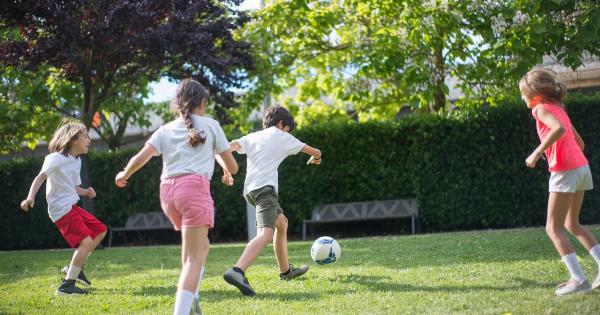As parents, we want our children to succeed in every aspect of their lives. We want them to be happy, healthy, and academically successful.
In order to achieve academic success, many parents turn to extracurricular activities as a way to enhance their child’s education. But what is the relationship between extracurricular activities and academic success in children? Let’s explore this topic in depth.
What Are Extracurricular Activities?
Extracurricular activities are any activities that a child participates in outside of their regular academic curriculum. These activities can include sports teams, music lessons, arts and crafts programs, academic clubs, and community service projects.
Extracurricular activities are often optional, but they can provide children with many benefits beyond what they learn in the classroom.
The Benefits of Extracurricular Activities
Extracurricular activities can provide children with a variety of benefits, including:.
- Improved social skills
- Increased self-confidence and self-esteem
- Opportunities to develop new skills and hobbies
- Reduced stress and improved mental health
- Enhanced academic performance
While all of these benefits are important, let’s focus on the relationship between extracurricular activities and academic success in children specifically.
Enhanced Academic Performance
There is a strong correlation between participation in extracurricular activities and academic success in children.
Studies have shown that children who participate in extracurricular activities tend to have higher grades, higher test scores, and better attendance records compared to children who do not participate in such activities.
One reason for this correlation is that extracurricular activities can help children develop important time management skills.
When children participate in multiple activities, they learn how to prioritize their time and manage their schedules effectively. This can translate to better study habits and improved academic performance.
Additionally, extracurricular activities can help children develop a love of learning and a desire to succeed academically.
When children learn new skills and achieve success in their extracurricular activities, they often feel more confident and motivated in their academic pursuits as well.
The Role of Parents
While extracurricular activities can provide many benefits for children, it is important for parents to approach them in a balanced way.
Too many activities can actually have a negative impact on a child’s academic performance and overall well-being.
Parents should work with their children to find activities that they are truly interested in and passionate about.
It is also important to set realistic expectations and prioritize academic responsibilities over extracurricular activities when necessary.
Conclusion
The relationship between extracurricular activities and academic success in children is clear.
By participating in extracurricular activities, children can develop important skills and habits that can improve their academic performance and overall well-being. Parents should encourage their children to participate in extracurricular activities, but also approach them in a balanced way that prioritizes academic responsibilities.





























